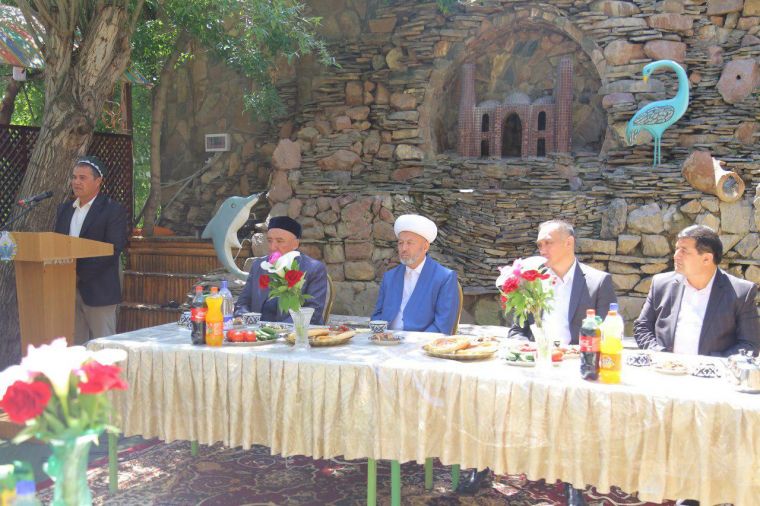Tashkent city



Delegation headed by Usmankhan Alimov, Chairman of Muslim Board of Uzbekistan, Muftiy and Jasurbek Akramov, Chairman of the Committee for Religious Affairs under the Cabinet Ministers of Uzbekistan is visiting Namangan region in order to have genuine talks with the ordinary Muslims.
During the meeting which was held in Uchkurgan district all speakers, first of all, praised Allah Almighty for the current blessing days and thanked sincerely the government efforts directed to develop and improve religious-enlightenment sphere initiated by the Honorable President Shavkat Mirziyoyev.
In his speech Jasurbek Akramov, Chairman of the Committee for the Religious Affairs underlined the importance of the President Decree “On rational improvement of religious-enlightenment sphere” dated April 16, 2018 which foresees a number practical improvements in the daily life of common muslims. Mr. Akramov also mentioned President’s recent visit to Namangan region where the Head of the State, Shavkat Mirziyoyev gave several instruction including scope and capacity of “Hidoya” Madrasah - specialized secondary Islamic school.
In its turn, Usmankhan Alimov strengthened the aforementioned ideas with Qur’an ayats and hadiths. He noted that every true worshipper should be thankful countless times to The Merciful Allah and support all the positive developments happening in our country with at least sincere prayers.
The delegation’s open talks with ordinary worshippers are continuing.
Press Service,
Muslim Board of Uzbekistan

The Fergana regional branch of the "Vaqf" Charity Public Fund has successfully organized a comprehensive humanitarian initiative to support 200 underprivileged families throughout the region.
In a dedicated effort to ensure these households are well-prepared for the winter season, the Fund distributed essential supplies including coal, electric heaters, warm clothing, and footwear.
Furthermore, families received vital food packages and various household appliances to improve their daily living conditions. Alongside these material contributions, a special charitable dinner was hosted for children from families who have lost their breadwinners, made possible through the generous support of local sponsors.
This initiative reflects the "Vaqf" Fund's ongoing commitment to social welfare and providing a helping hand to those most in need within our community.